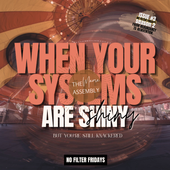Micromanaging kills.
Not just teams.
Households too.
If you’ve ever had a boss who hovers over every detail, you know how soul-sucking it can feel. But here’s the truth: we often bring the same micromanaging habits into our homes — and the outcome is just as damaging.
This post explores why micromanaging destroys trust, how perfectionism feeds it, and what you can do to finally let go.
Why Micromanaging Hurts Teams
At work, micromanaging drains initiative and turns smart people into box-tickers.
-
Every decision is second-guessed.
-
Every presentation “fixed.”
-
Every email re-written until it sounds exactly like the boss.
The result? Nobody bothers to think for themselves. Morale sinks. People leave. Eventually, people stop trying altogether.
Perfectionism: The Hidden Driver
Here’s the truth: I wasn’t innocent either.
For years, I chased perfection in everything. I would:
-
Rewrite and edit my team’s work.
-
Ensure every presentation looked exactly the same.
-
Obsess over formatting, headings, and branded templates.
Looking back, I realise how this must have made people feel. They’d put in their best effort, only for me to mark it up like a teacher with a raging red pen.
Did it improve the outcome? Probably not.
Did it dent someone’s confidence? Most likely yes.
So I stopped.
And it wasn’t easy. I still expect consistency when it comes to branded templates and external-facing work — because professionalism matters. But I’ve learned to let the internal details go. That balance has made all the difference.
Micromanaging at Home
One night, I caught myself re-stacking the dishwasher after the kids had “helped.”
And it hit me: I had become that boss.
Different context, same outcome: people stop trying.
Micromanaging at home looks like:
-
Re-folding laundry.
-
Double-checking homework.
-
Correcting every little detail.
The effect is the same as at work: nobody learns, nobody takes ownership, and you end up doing everything yourself — with a side of resentment.
Leadership Lessons for Work and Home
Whether you’re leading a team or running a household, the principle is the same:
✅ Step back.
✅ Trust the process.
✅ Let people do things their way.
Because the goal isn’t perfection.
The goal is shared ownership.
When you stop micromanaging, your team (and your family) step up. They might not do it your way… but they’ll do it their way. And you might even learn something yourself.
3 Ways to Stop Micromanaging Today
If you’re ready to break the habit, start small:
-
Set the standard, then step away. Share the outcome you want — not the exact method.
-
Resist the urge to fix. Ask yourself: does this need to be re-done, or is it just different?
-
Celebrate effort, not perfection. Ownership grows when people feel trusted, even if it’s messy.
Conclusion
Micromanaging might feel like control, but it actually creates dependency and frustration. Letting go — even just a little — builds confidence, ownership, and trust.
At work and at home, leadership isn’t about perfection. It’s about creating space for others to step up.
Because the boardroom and the living room aren’t that different.
PS. We all leave the dishwasher to my husband now… he’s the only one who knows how to “stack it properly.” 😂
And if you (like me) need a daily reminder not to sweat the small stuff, grab yourself a “Let That Sht Go”* mug from my Swear Jar Mama collection.
No Filter Fridays Archive
Missed an issue? Catch up on every post right here.


















































0 comments